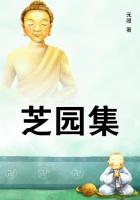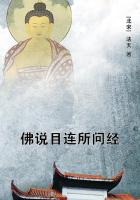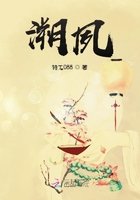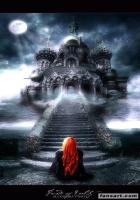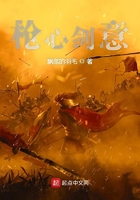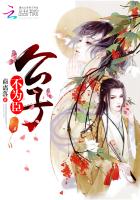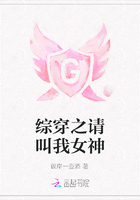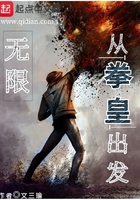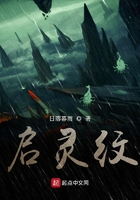Whistler had not yet made his appearance in London, but the others did quite as well. What result could a student reach from it? Once, on returning to London, dining with Stopford Brooke, some one asked Adams what impression the Royal Academy Exhibition made on him. With a little hesitation, he suggested that it was rather a chaos, which he meant for civility; but Stopford Brooke abruptly met it by asking whether chaos were not better than death. Truly the question was worth discussion. For his own part, Adams inclined to think that neither chaos nor death was an object to him as a searcher of knowledge -- neither would have vogue in America -- neither would help him to a career. Both of them led him away from his objects, into an English dilettante museum of scraps, with nothing but a wall-paper to unite them in any relation of sequence. Possibly English taste was one degree more fatal than English scholarship, but even this question was open to argument. Adams went to the sales and bought what he was told to buy; now a classical drawing by Rafael or Rubens; now a water-color by Girtin or Cotman, if possible unfinished because it was more likely to be a sketch from nature; and he bought them not because they went together -- on the contrary, they made rather awkward spots on the wall as they did on the mind -- but because he could afford to buy those, and not others.
Ten pounds did not go far to buy a Michael Angelo, but was a great deal of money to a private secretary. The effect was spotty, fragmentary, feeble; and the more so because the British mind was constructed in that way -- boasted of it, and held it to be true philosophy as well as sound method.
What was worse, no one had a right to denounce the English as wrong.
Artistically their mind was scrappy, and every one knew it, but perhaps thought itself, history, and nature, were scrappy, and ought to be studied so. Turning from British art to British literature, one met the same dangers.
The historical school was a playground of traps and pitfalls. Fatally one fell into the sink of history -- antiquarianism. For one who nourished a natural weakness for what was called history, the whole of British literature in the nineteenth century was antiquarianism or anecdotage, for no one except Buckle had tried to link it with ideas, and commonly Buckle was regarded as having failed. Macaulay was the English historian. Adams had the greatest admiration for Macaulay, but he felt that any one who should even distantly imitate Macaulay would perish in self-contempt. One might as well imitate Shakespeare. Yet evidently something was wrong here, for the poet and the historian ought to have different methods, and Macaulay's method ought to be imitable if it were sound; yet the method was more doubtful than the style. He was a dramatist; a painter; a poet, like Carlyle. This was the English mind, method, genius, or whatever one might call it; but one never could quite admit that the method which ended in Froude and Kinglake could be sound for America where passion and poetry were eccentricities.
Both Froude and Kinglake, when one met them at dinner, were very agreeable, very intelligent; and perhaps the English method was right, and art fragmentary by essence. History, like everything else, might be a field of scraps, like the refuse about a Staffordshire iron-furnace. One felt a little natural reluctance to decline and fall like Silas Wegg on the golden dust-heap of British refuse; but if one must, one could at least expect a degree from Oxford and the respect of the Athenæum Club.
While drifting, after the war ended, many old American friends came abroad for a holiday, and among the rest, Dr. Palfrey, busy with his "History of New England." Of all the relics of childhood, Dr. Palfrey was the most sympathetic, and perhaps the more so because he, too, had wandered into the pleasant meadows of antiquarianism, and had forgotten the world in his pursuit of the New England Puritan. Although America seemed becoming more and more indifferent to the Puritan except as a slightly rococo ornament, he was only the more amusing as a study for the Monkbarns of Boston Bay, and Dr. Palfrey took him seriously, as his clerical education required.
His work was rather an Apologia in the Greek sense; a justification of the ways of God to Man, or, what was much the same thing, of Puritans to other men; and the task of justification was onerous enough to require the occasional relief of a contrast or scapegoat. When Dr. Palfrey happened on the picturesque but unpuritanic figure of Captain John Smith, he felt no call to beautify Smith's picture or to defend his moral character; he became impartial and penetrating. The famous story of Pocahontas roused his latent New England scepticism. He suggested to Adams, who wanted to make a position for himself, that an article in the North American Review on Captain John Smith's relations with Pocahontas would attract as much attention, and probably break as much glass, as any other stone that could be thrown by a beginner. Adams could suggest nothing better. The task seemed likely to be amusing. So he planted himself in the British Museum and patiently worked over all the material he could find, until, at last, after three or four months of labor, he got it in shape and sent it to Charles Norton, who was then editing the North American. Mr. Norton very civilly and even kindly accepted it. The article appeared in January, 1867.
Surely, here was something to ponder over, as a step in education; something that tended to stagger a sceptic! In spite of personal wishes, intentions, and prejudices; in spite of civil wars and diplomatic education; in spite of determination to be actual, daily, and practical, Henry Adams found himself, at twenty-eight, still in English society, dragged on one side into English dilettantism, which of all dilettantism he held the most futile; and, on the other, into American antiquarianism, which of all antiquarianism he held the most foolish. This was the result of five years in London.
Even then he knew it to be a false start. He had wholly lost his way. If he were ever to amount to anything, he must begin a new education, in a new place, with a new purpose.

